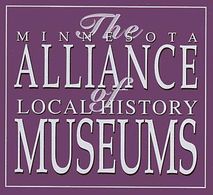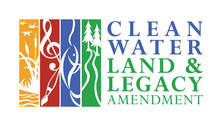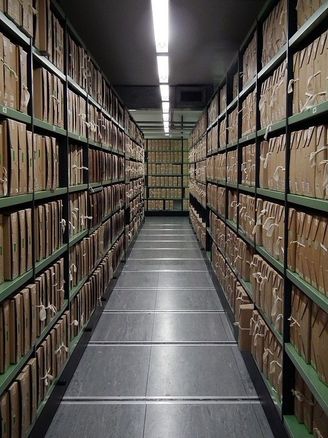 National Archives, Wikipedia Commons National Archives, Wikipedia Commons A committee worked for years planning a community center in your town. The building is completed, and now the committee wants to donate its five boxes of meeting minutes, feasibility studies, contractor bids, and other papers to your history organization. Processing archives is different than accessioning three dimensional objects or individual photos. If you don't handle archives every day, you might have some questions: Should you cull the collection? How detailed should your accession records be? Should you remove the papers from non-archival binders and folders? What should you do with a promotional object, like a T-shirt or a campaign button, found among the paper? Lucky for you, you can find your answers at the 2017 Minnesota Alliance of Local History Museum Annual Meeting and Conference, in a session called Curators Affinity Group session - Archival Work for the Non-Archivist: In most history organizations, processing archival collections is often a curator’s responsibility. This session, featuring Tom Steman, University Archivist/Professor at St. Cloud State University, will provide an overview of archival processing for the non-archivist (of course, actual archivists are welcome to attend, too!). Tom will cover the basics of processing, standards/best practices, retention schedules, and so on, giving participants an overview of the process from start to finish. His presentation will be followed by a Q & A. Then, if time permits, the Affinity Group will enjoy a roundtable meeting. Curators Affinity Group This session was organized by MALHM's Curator Affinity Group, which first met at the 2015 MALHM Conference and has since met occasionally for training. Members also share ideas through email and a Facebook group. No matter what your job title is, if you deal with collections, this group is for you. The group's description states: "Curators are often Curator, Registrar, Collections Manager, Exhibits Manager, Historian, Researcher, and Author all rolled into one! While the nature of our work is broad, most of us encounter similar situations. Through this group, curators from local history organizations can get to know one another in hopes of supporting one another and sharing thoughts, problems, ideas, strategies, and solutions." For more information on this Affinity Group, contact Theresa Norman, Curator, Minnesota Masonic Heritage Center. Register now! Registration is now open for the MALHM Conference, set for April 26-27 in Walker, MN. Register through our new online store. Attendees may also pay with a registration form and check by mail. With either method, attendees can indicate dietary needs, such as vegetarian and gluten free. Registration deadline is April 10. Chase on the Lake will offer a discount to MALHM attendees who book by phone by April 4. For more information, see our Annual Conference page. If you have additional questions, please contact MALHM Coordinator Marci Matson or Conference Chair Jill Wohnoutka. Look for a full conference schedule soon!
0 Comments
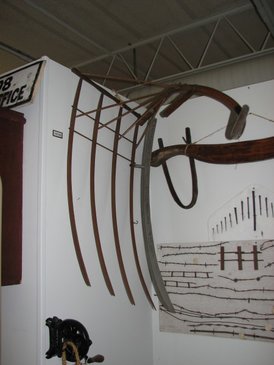 How many scythes should a museum, located in the heart of farm country, have in its collection? Pope County Historical Society Collections Manager Ann Grandy pondered this question in a blog post entitled, "The Size of Our Scythes Makes Me Sigh." There's the one on exhibit (photo at left): "This strikingly beautiful tool was critical in the early years of Pope County when wheat was king. As the blade mowed the stalks of grain, the long fingers caught the stalks and laid them down in an orderly fashion. This made the threshing process much easier. It is an elegant and well balanced tool. Is it important for us to have a cradle scythe in our collection? ABSOLUTELY!" Grandy writes. But PCHS has four more in storage, she noted: "We have 5. Yep 5. And that isn’t counting the plain scythes without the extra fingers to catch the stalks. These things are BIG. And dangerous with the long blade." Museums do not have unlimited storage. PCHS is among several museums around the state that are completing collections inventories and reassessing how many scythes - or ox yokes, wedding dresses, carpenter planes and other commonly donated artifacts - are needed to tell a community's history. Before getting rid of duplicates, however, what do museums need to consider? What are the legal implications? And what should be done with the deaccessioned items? Grandy and four collections colleagues will answer those questions and more in a session at the 2017 MALHM Annual Meeting and Conference, titled "Deaccessioning: Considerations from the Field": At some point or another, every historical society will have to engage in deaccessioning. With this in mind, five museum professionals are coming together to share their thoughts, experiences, and considerations on how to make deaccessioning collections easier for our colleagues and an easier practice in the field itself. The session will begin with the basics of deaccessioning – what it is, why we do it, and how we do it. Special attention will be given to how NAGPRA laws and culturally sensitive items affect local museums and what should be done at each museum with these collections. The discussion will also cover obsolete media formats in the collection and the importance of reappraisal of items. Real-life experiences will be shared regarding what can be done with items after they are removed from the collection from the perspective of what has worked and what has not worked at a local museum. And finally, the link between accession and deaccession will be considered as well as how collections practices have and will continue to change deaccessioning. Presenters:
When MALHM staff traveled around the state this fall to regional history group meetings, many groups requested a conference session on this topic. Thanks to these presenters for coming through! Register now! Registration is now open for the MALHM Conference, set for April 26-27 in Walker, MN. Register through our new online store. Attendees may also pay with a registration form and check by mail. With either method, attendees can indicate dietary needs, such as vegetarian and gluten free. Registration deadline is April 10. Chase on the Lake will offer a discount to MALHM attendees who book by phone by April 4. For more information, see our Annual Conference page. If you have additional questions, please contact MALHM Coordinator Marci Matson or Conference Chair Jill Wohnoutka. Look for a full conference schedule soon! The Minnesota Alliance of Local History Museums is seeking volunteers willing to serve on an Advisory Team to contribute to the review and development of CollectiveAccess an online, open source Collection Management Software. Tasks include: adjusting and organizing of the data fields; sharing ideas about the desired functionality, features and customization of CollectiveAccess; and creation of centralized setup and search function.
Members of the Advisory Team would ideally be curators, collection managers and museum directors who are frequent users of their institution’s collection management software (CMS) who would be willing to share their expertise to help shape CollectiveAccess into a CMS that would be useful to museums throughout Minnesota. Membership in the Advisory Team in no way requires you to change your current CMS or to participate in the proposed pilot project, which involves five organizations testing the software. (See previous post.) Members of the Advisory Team agree to participate in e-mail discussions of ideal CMS setup and the use of various fields within the software. There will most likely be monthly webinar meetings to discuss design and usage questions. The earliest the project would begin is June 2017. Interested individuals should contact MALHM Board Member Ann Grandy or Joe Hoover for more information or to sign up by Jan. 31. 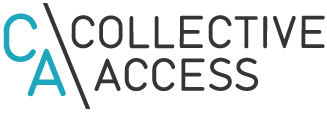 The Collection Management Task Force is seeking 5 organizations willing to serve as pilot sites for CollectiveAccess, a web-based and open-source collections management software application. MALHM is seeking a grant to cover costs of the pilot. Interested organizations should contact MALHM Board Member Ann Grandy, Pope County Historical Society curator, or MNHS Digital Technology Outreach Specialist Joe Hoover as soon as possible. Organizations will be chosen no later than Jan. 13, 2017 in order to meet the grant deadline. The primary goal of this pilot project is to improve the quality of collections management tools available to the five implementing institutions, and by extension, to the field. The five implementers will participate in a community-driven collaborative and serve as leaders for their State and have the opportunity to participate in the development, deployment, and governance of a mission-critical software application. Each organization will develop its own implementation plan, based on a standard template. These implementation plans will serve as a model for other organizations planning a move to CollectiveAccess. Most plans will include: defining functional and operational requirements, completing a data map and any necessary cleanup, and testing any new functionality created in the course of the project. With the assistance of the program management staff, the implementing institutions will select a service provider to complete the installation, configuration, and data migration work. Implementing institutions may choose to host the software in-house or select a service provider to provide remote hosting. Ideally the organizations would have a part-time curator/collection manager on staff who is familiar with the collection and the current software and who would be eligible to increase their hours with grant funding. At least three of the organizations should be current PastPerfect users, but organizations using other collection management systems such as Excel, Access, and Filemaker Pro are also encouraged to apply. It is not mandatory for organizations to have their entire collection in their current database, but we are seeking organizations that have a large number of items in their current software system. Earliest beginning date for grant work would be June 1, 2017. The benefits of participating in the pilot program include:
|
Archives
December 2019
Categories
All
|
Minnesota Alliance of Local History Museums: Peers Helping Peers Since 1991
|
General contact:
Liz Koele, Alliance Coordinator [email protected] 75 W 5th St #400 St Paul, MN 55102 612-500-7460 |
© COPYRIGHT 2023. ALL RIGHTS RESERVED.
This project has been financed in part with funds provided by the State of Minnesota from the Arts and Cultural Heritage Fund through the Minnesota Historical Society.
|
 RSS Feed
RSS Feed
